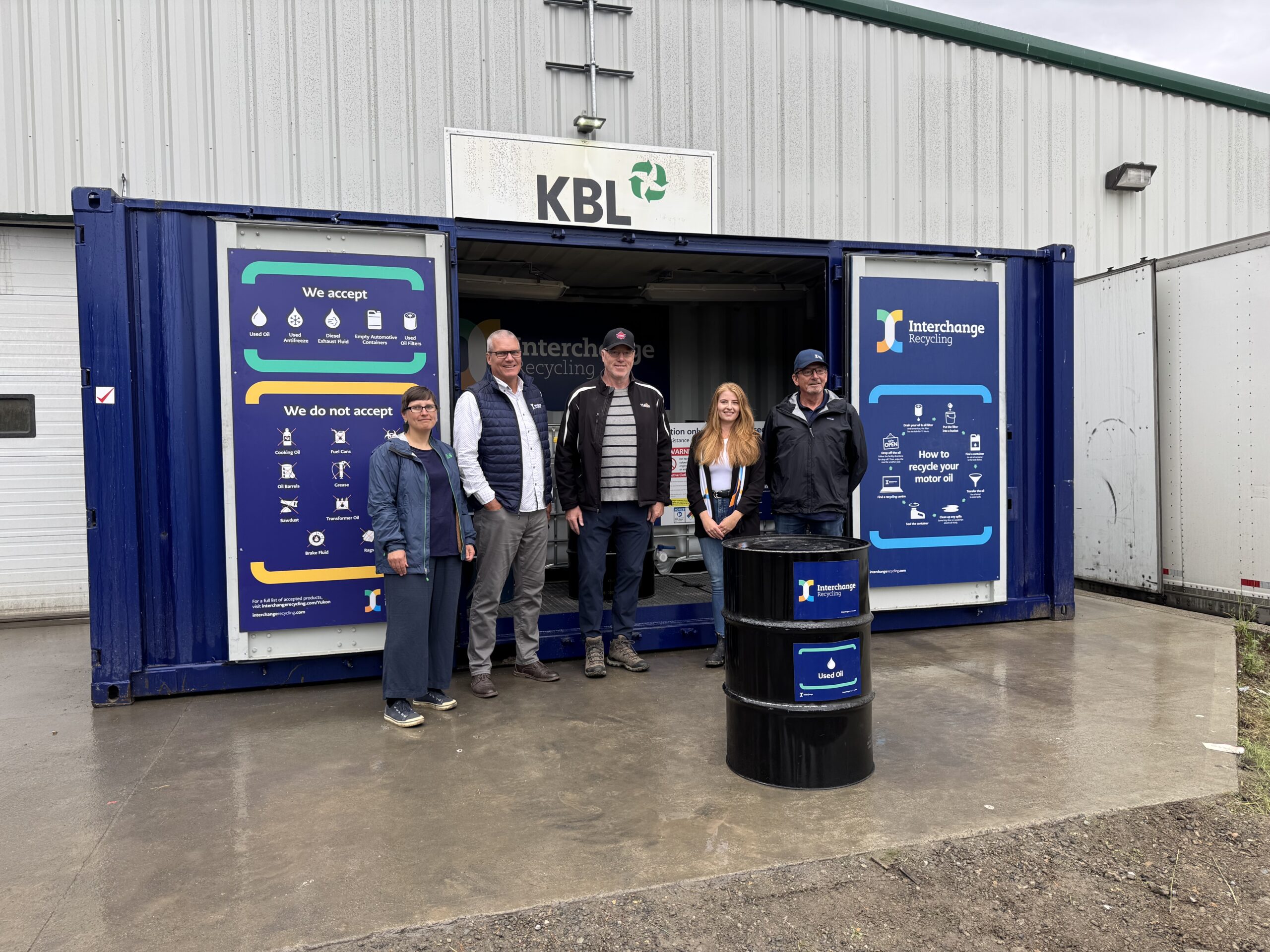Interchange Recycling expands into Yukon
Share
Share

Yukon residents now have a new way to keep used oil and antifreeze out of landfills.
Interchange Recycling, the not-for-profit organization behind British Columbia’s Extended Producer Responsibility (EPR) program for automotive fluids and containers, has officially opened its first permanent collection site outside the province. Located at 91972 Alaska Highway in Whitehorse, the new facility began accepting materials on August 1.
This, the group said, is key step forward for recycling infrastructure in the territory.
“We’re incredibly excited to officially be up and running in Yukon,” said Jenn Robson, director of operations at Interchange Recycling. “This marks a major milestone for our organization and for Extended Producer Responsibility in the territory.”
The Whitehorse site accepts lubricating oil, antifreeze, diesel exhaust fluid, oil filters and all automotive containers. Interchange Recycling is also hosting mobile collection events in Teslin Watson Lake (Sept. 13), and Faro (Sept. 20) to reach residents across the territory.
The expansion comes as Yukon ramps up its waste reduction efforts, with targets to cut per capita waste generation by 10 per cent by 2030 and boost landfill diversion to 40 per cent by the end of this year.
Robson said the organization is committed to making drop-off “as convenient and seamless as possible” and will be listening closely to community feedback. The EPR program is expected to support proper disposal, reduce pollution and create jobs in recycling and waste management.
Used oil, when properly collected, can be re-refined into new lubricants or used in manufacturing and energy products. Oil filters are recycled into metal goods like rebar and nails, while containers are repurposed into new oil containers, drainage tiles and parking curbs. Used antifreeze is refined and reused in automotive applications.
Interchange Recycling has also expanded its product scope in Yukon to include all automotive containers and diesel exhaust fluid, in addition to its core materials. In B.C., the organization collects nearly 50 million litres of used oil annually.
For safe storage, residents are advised to keep materials in sealed, clearly labelled containers and avoid mixing products. Small volumes can be dropped off at the Whitehorse site or at collection events, while larger volumes should be arranged through a registered collector.
Photo: From l-r, Natalia Baranova, Environmental Protection and Assessment, Government of Yukon; Gord Klassen, Interchange Recycling board member; Hon. Nils Clarke, Minister of Highways and Public Works, Minister of Environment, MLA – Riverdale North; Jenn Robson, director of operations, Interchange Recycling; Wayne Marees, Interchange Recycling board member.
Leave a Reply